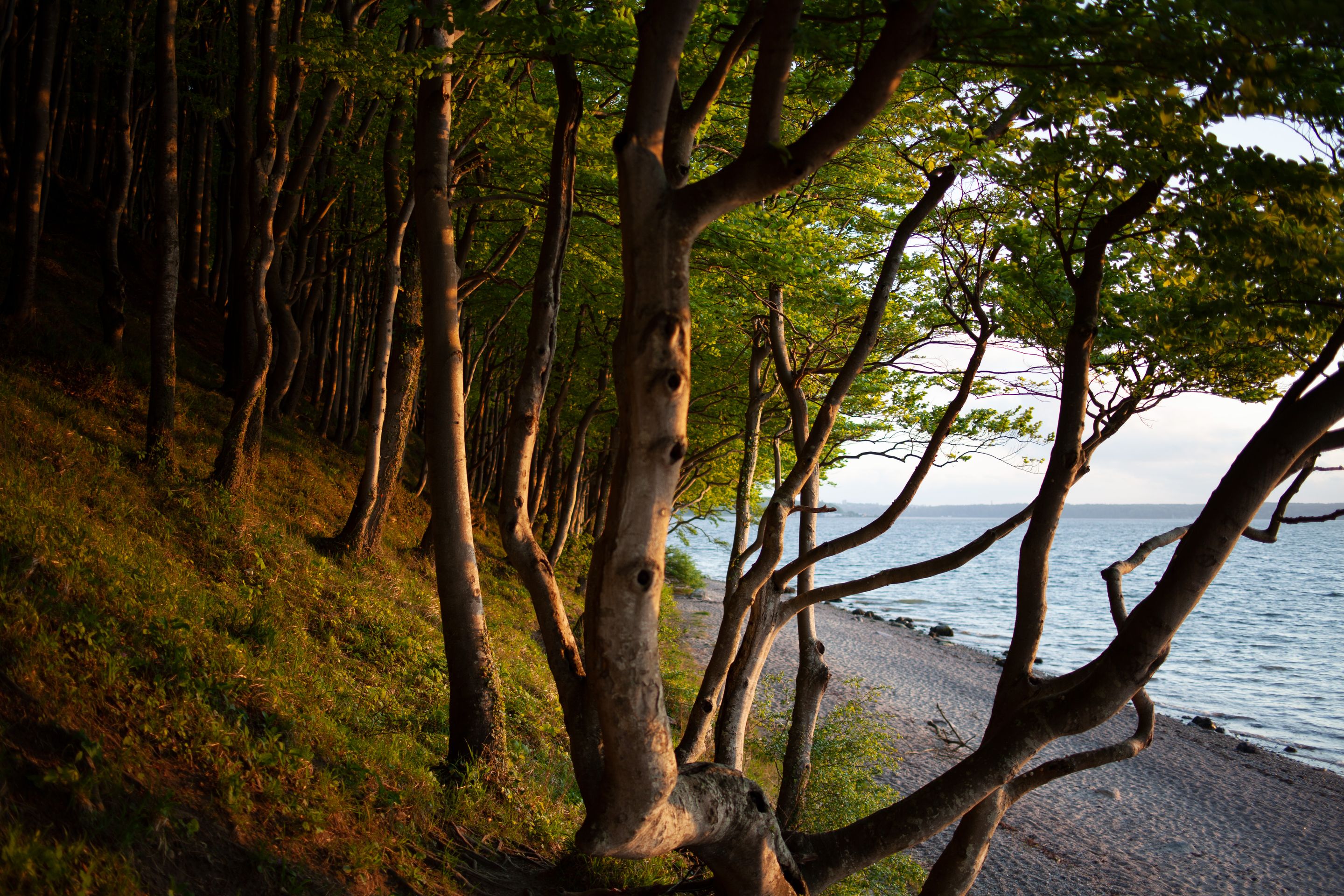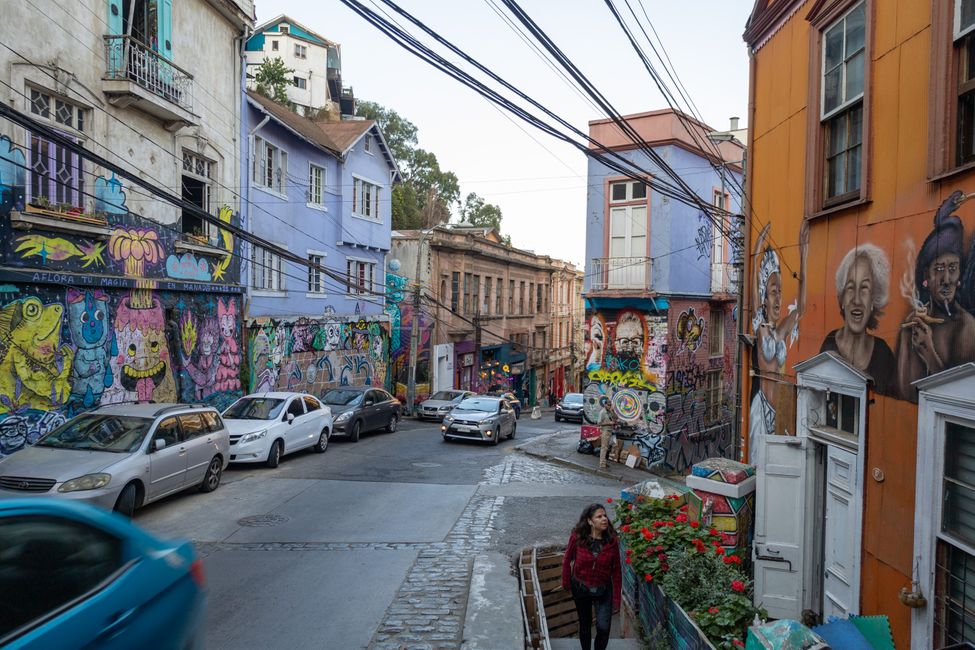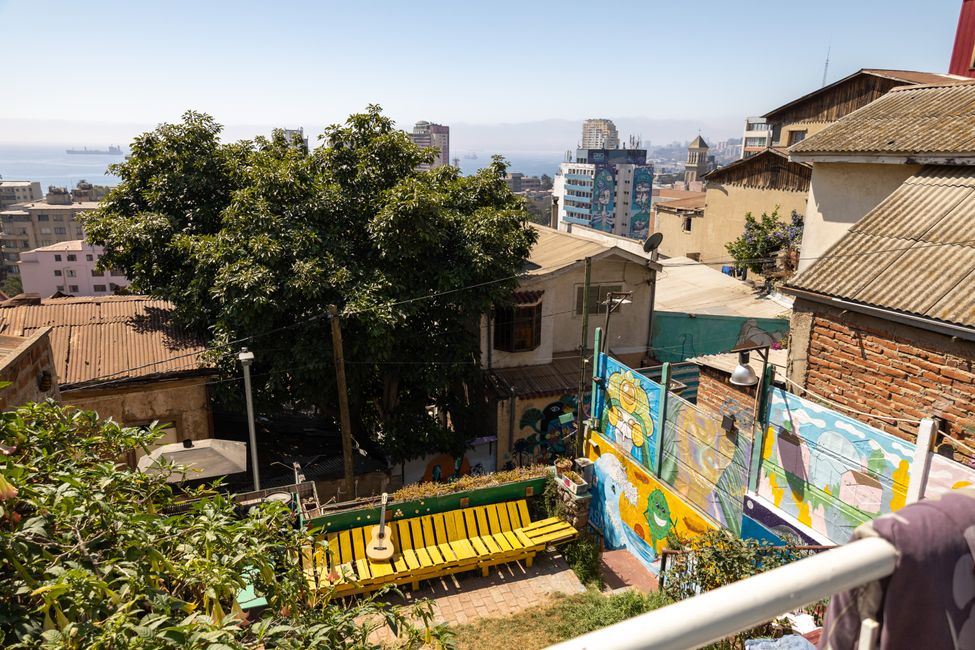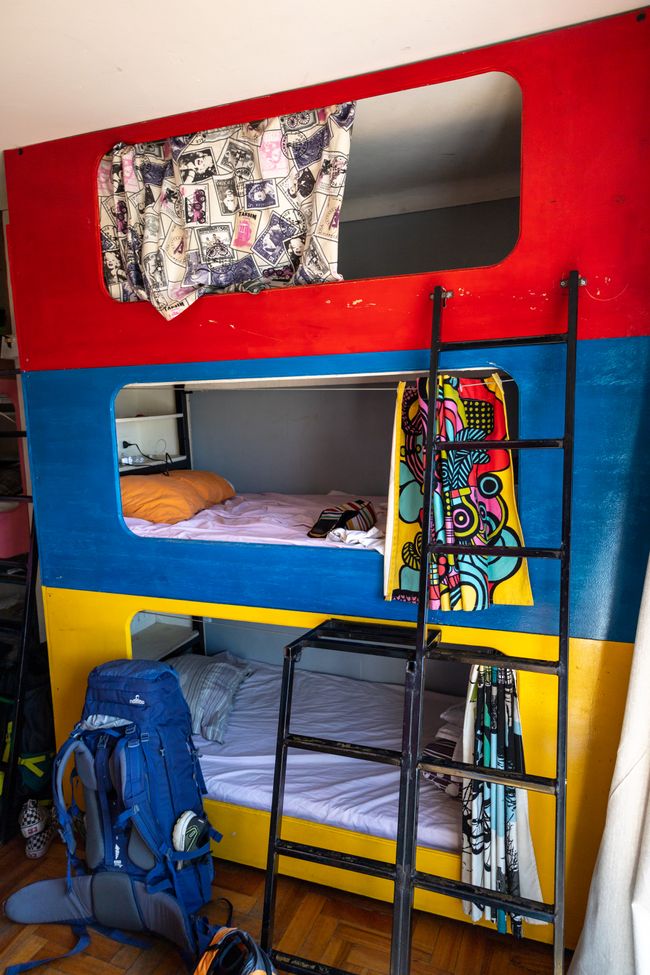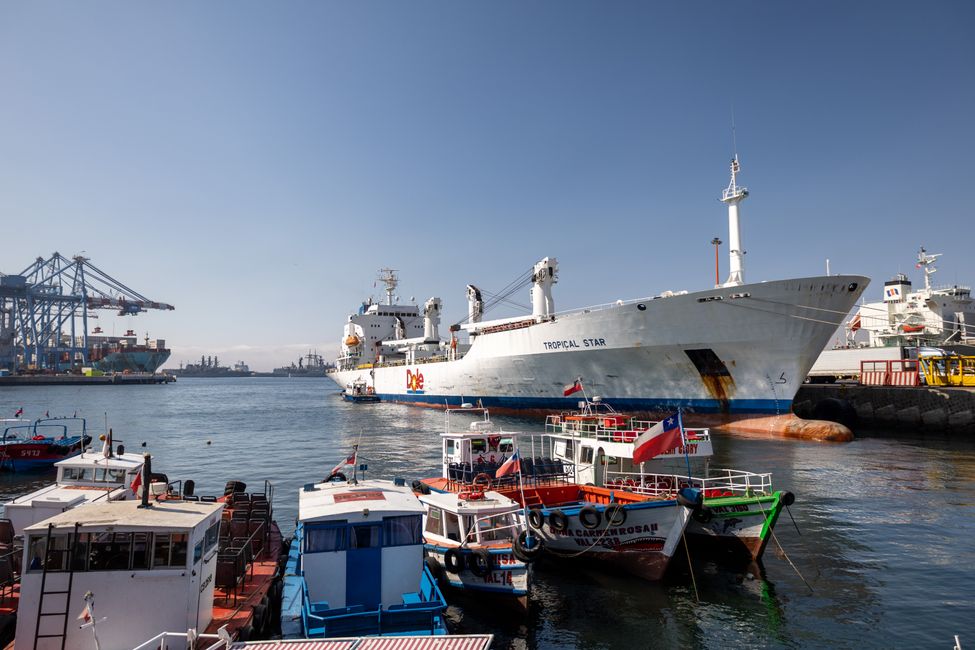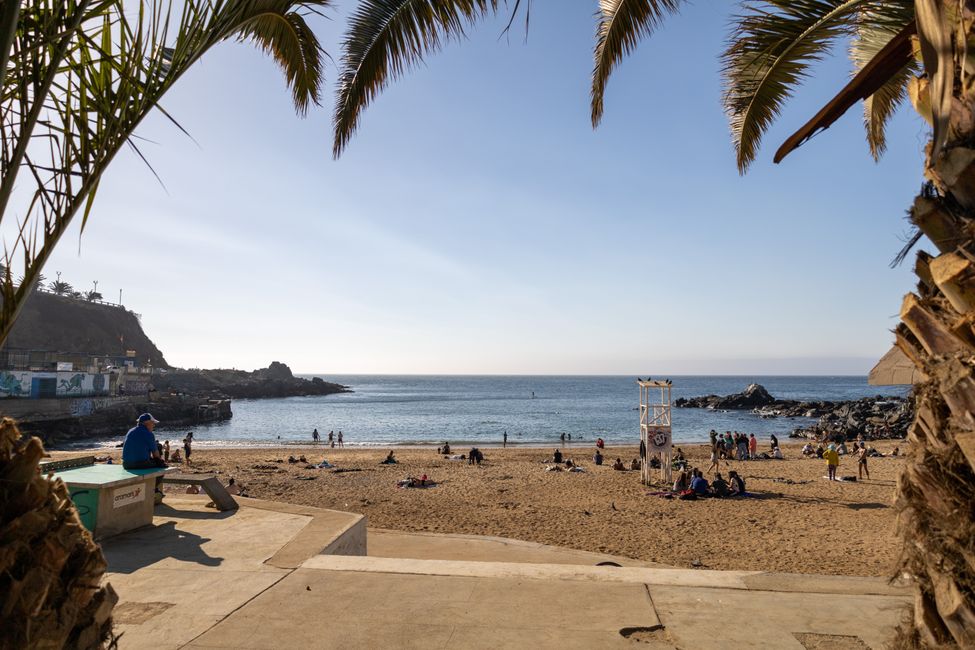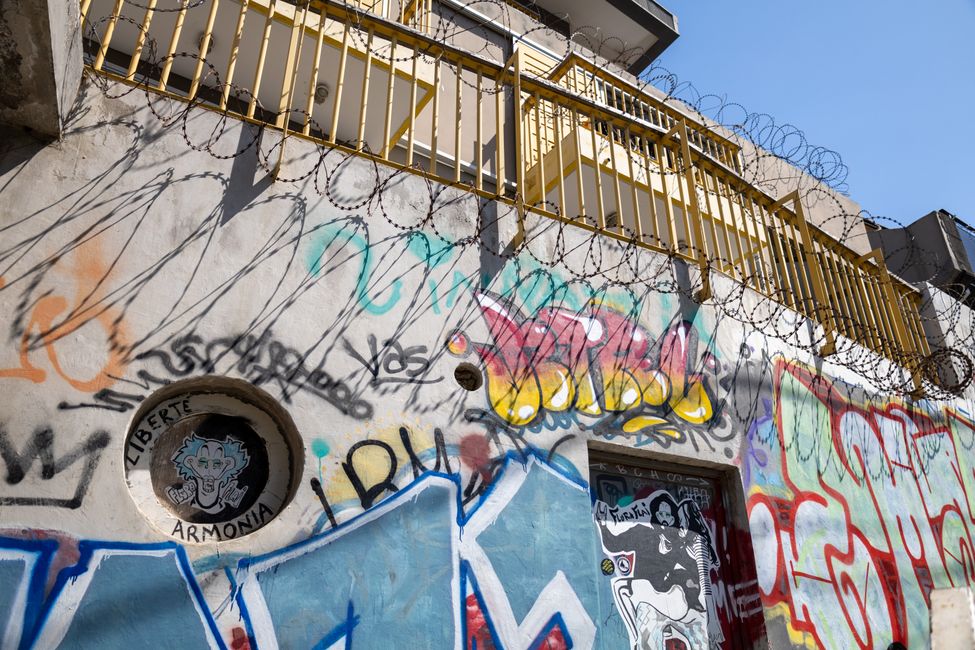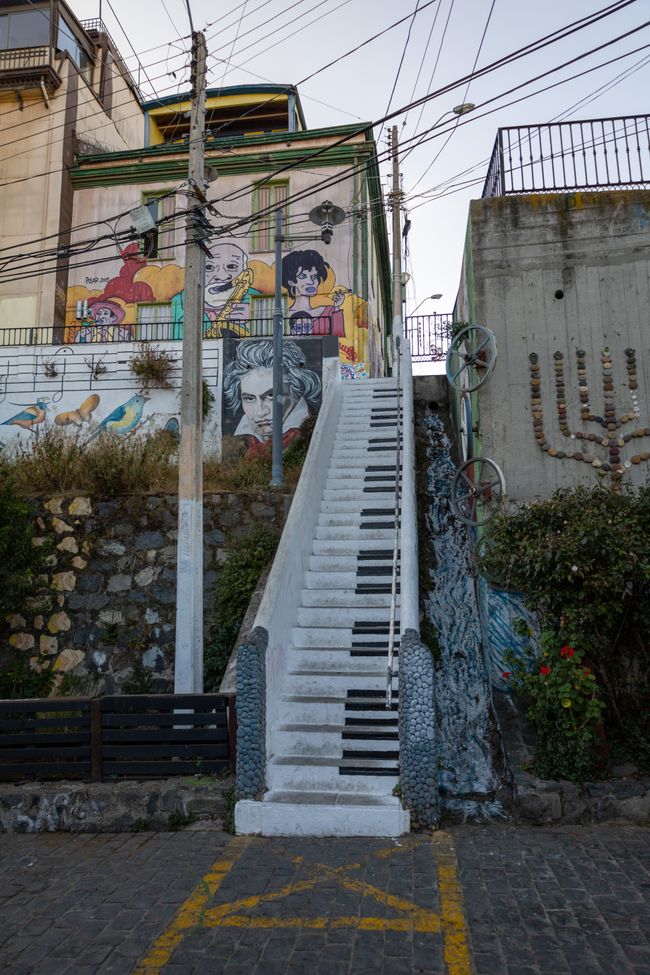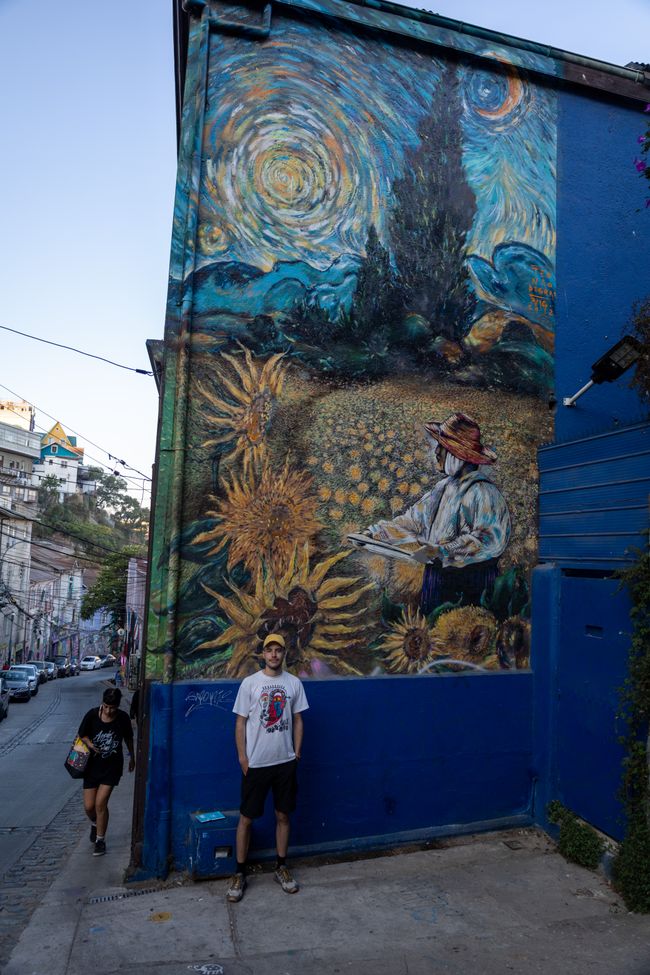22.03.23
Publikováno: 13.04.2023
After the meager bread and jam breakfast, I go back to bed until noon.
In the afternoon, Porter and I stroll through the city center, avoiding the countless piles of dog poop left behind by the many free-roaming dogs everywhere.
We are served excellent ceviche at a Peruvian restaurant. Afterwards, we walk to the beach, passing by the huge container port (until a few years ago, neighboring San Antonio took over the lead, Valparaiso was the largest container port in Chile, especially for exporting fruits and vegetables to Europe).
There are many locals at Las Torpederas Beach. Some esoteric-looking foreigners have formed a large circle and are burning foul-smelling herbs in the middle. An elderly woman shouts insults at them and accuses them of blasphemy.
Porter and I settle down at the beach cafe and order empanadas. Mine is supposedly filled with the delicious Reineta, but a greasy, unidentifiable minced meat mixture oozes out of the empanada. Probably the remains of the Reineta minced up. I hope I don't get food poisoning. On the way back, a teenager tries to sell me pink powder, claiming it's great and that he has tested it himself, which is clearly evident. When I make it clear that I don't like chemicals, he starts telling me about his friend who had an accident on his moped.
We take the bus back to the city center and enjoy the views from the different hills. Some can also be climbed using an ascensor (funicular, which works with a counterweight), which have been in the city since the 19th century. Valparaiso's heyday also ended with the opening of the Panama Canal, like in Punta Arenas.
A park has been created on the former prison hill. There is also the oldest building in Valparaiso, a former Spanish arsenal, later repurposed as a cell block.
A group of students interviews me about recycling. I tell them about the recycling paradise in Germany and lament the lack of information or recycling options in Chile.
For dinner, we go to the traditional bakery that has been around since 1811 but tastes very mediocre.
In the pub, they serve Chilada or Michilada. A 1-liter beer bottle is shared, and the glass rims are dipped in lemon or lime juice and then in salt or Merqen, a spicy smoked paprika powder that Chileans eat with pretty much everything. In Michilada, which is supposedly the Mexican version, the beer is also mixed with hot sauce. All in all, high risk of heartburn and not worth repeating. Back at the hostel, I have more beer with the volunteers, fortunately being able to use my Spanish with them as they all come from Argentina, Chile, or the Basque Country.
Odpovědět
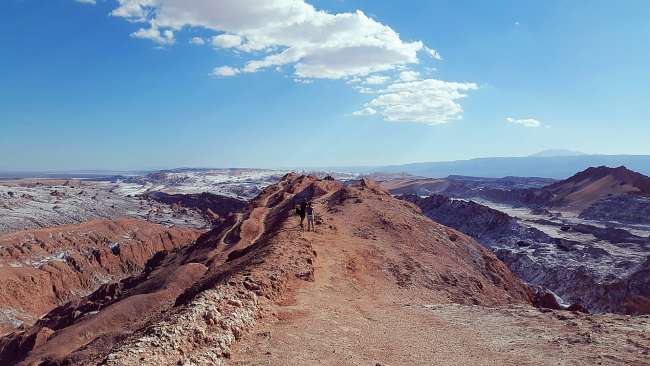
Cestovní přehledy Chile
